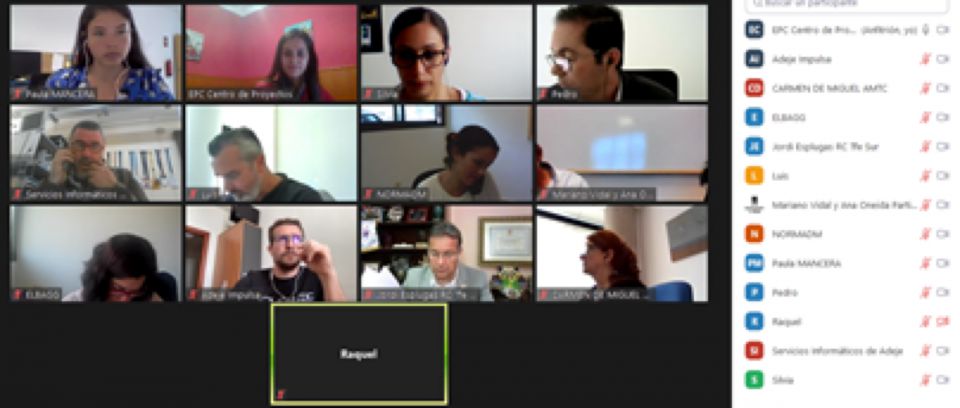On March 23rd, 24th, 25th and 26th the I SMART-ECO Cooperation Mission will launch, designed to improve digital competiveness among companies and business persons in the MAC – Madeira, Azores, Canarias – zone, under the umbrella of the Programme for Territorial Integration INTERREG MAC 2014-2020 between Spain and Portugal
A technical member of the Adeje council from the department of economic development under Councillor Raquel Rodríguez Alonso, and the president of the AECPA, the Adeje association of businesses ,commercial enterprises and professionals, representing the commercial interests of the borough, have been leading the first meeting of the Adeje working group as part of the SMART-ECO project. During the virtual meeting the group arrived at their first working conclusions and presented a series of questionnaires for local businesses and the general Adeje public.
With this working group they are working to define the actions needed for an intelligent economic digital strategy. “Adeje’s working group is made up of different key players in the borough so that we can count upon relevant perspectives, opinions and expectations so that more can benefit from the project’s actions”, said the councillor.
The work has been divided into three pillars. In the first place they are working on a short presentation on the SMART-ECO project, its motivation, objectives, members, and the working structure. In this regard the SMART-ECO project is outlined as creating a platform for smart cities to improve digital competitiveness for companies, small and medium enterprises, the self-employed and entrepreneurs. This digital transformation of the local economy will assist companies in growth in regional, national and international markets and contribute to the economic diversification of economies in the MAC region.
Secondly, the group presented the method being used for the evolution of a local Digital Economic Diagnostic, which will be the base for the local digital economic strategy. These will be part of the principal conclusions of the TICC sector (Transformation Digital de la Empresa – digital transformation of businesses). In this section the conclusion was that the borough’s connectivity could be usefully served by attracting digital nomads, and that those businesses that already had a technology base can connect with each other through networking, informing others as to the TICC sector’s relevance and stressing that the TICC sector is also an employment niche for those currently seeking work.
Regarding the step towards digital transformation, the conclusion was that the focus should be streamlined for each company, assisting the integration of those already in the marketplace. The group reiterated the importance of each company having a viable online presence, presenting their product and the work they will be undertaking to improve that digital presence and positioning, the development of a strong training plan and the work to recognise the actual real-time needs of the businesses in the borough.
